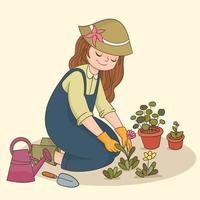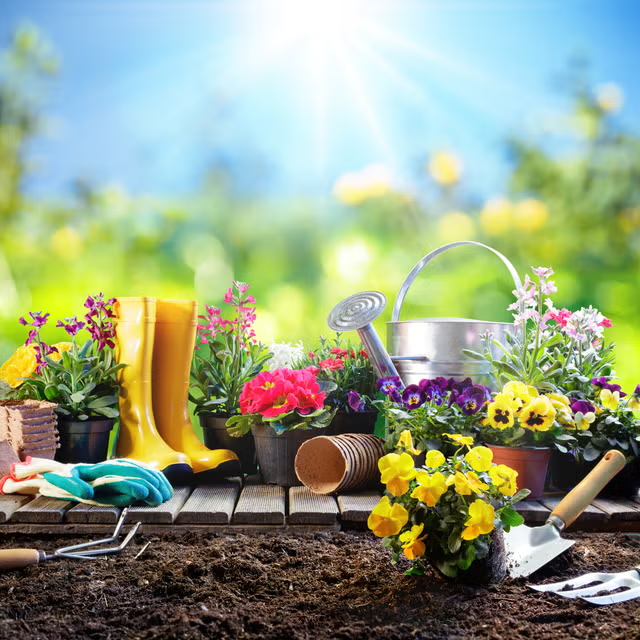Expanding Green Thumbs: a Novice's Trip Into the Globe of Horticulture
Are you excited to get your hands dirty and start growing your own garden? You'll discover about selecting the right plants, comprehending soil and compost, and essential horticulture tools. We'll additionally show you watering and feeding methods and just how to deal with typical garden pests. gardening for beginners.
Picking the Right Plant Kingdoms
1. First, you require to assess your gardening space and establish the variety of plants that will certainly fit conveniently. This step is crucial due to the fact that congestion can bring about stunted development and disease. Action the measurements of your garden beds or pots and compute the offered area. Consider the fully grown size of the plants you mean to grow. Some veggies and herbs call for even more area than others, so it's crucial to do your research.
As soon as you have a clear concept of your horticulture room, it's time to select the ideal plants. Specific plants flourish in full sunlight, while others choose partial shade. This will assist you select plants that are matched to your specific problems.
It's additionally important to consider your level of horticulture experience. If you're brand-new to gardening, choose plants that are simple to grow and require minimal upkeep. Herbs like mint, basil, and rosemary are forgiving and perfect for beginners. Furthermore, consider the length of your growing season. If you live in a region with a shorter growing season., pick plants that have a much shorter maturity period.
Understanding Soil and Garden Compost
Dirt is the foundation of your garden, offering nutrients, water retention, and support for your plants. It is essential to have a good understanding of your dirt kind, whether it is sandy, clayey, or fertile, as this will establish the types of plants that will certainly flourish in your yard. Remember, a productive and healthy dirt is the essential to an effective yard, so take the time to comprehend your dirt and incorporate compost to ensure your plants thrive.

Vital Horticulture Devices
A good pair of horticulture handwear covers is a must-have to protect your hands from thorns, irritable plants, and dust. A garden pipe or watering can is necessary for keeping your plants moistened. A tough set of pruning shears or secateurs is crucial for trimming and shaping your plants.
Watering and Feeding Strategies

Taking Care Of Common Garden Pests
As a novice garden enthusiast, you may come across common yard pests that can damage your plants. These bugs can vary from insects like caterpillars, aphids, and beetles, to tiny animals like rabbits and squirrels. It is essential to be able to deal and determine with these pests properly in order to protect your plants and make sure an effective yard.
Among the initial steps in handling yard pests is check these guys out to on a regular basis evaluate your plants for any kind of signs of infestation. Look for eaten fallen leaves, holes in the vegetation, or the existence of little bugs. If you spot any kind of pests, it's important to do something about it quickly to avoid them from spreading out and creating more damages.
There are several approaches you can make use of to regulate yard bugs. Furthermore, there are organic bug control sprays readily available that can help discourage and remove typical yard insects.
Keep in mind, prevention is key when it pertains to managing garden bugs. Keeping your yard complimentary and tidy of particles can help in reducing the likelihood of an invasion. Regularly removing weeds and dead plants can likewise aid remove hiding places for parasites.
Final Thought
Congratulations on finishing your newbie's journey right into the globe of horticulture! By picking the right plants, comprehending dirt and garden compost, using vital gardening devices, and grasping watering and feeding techniques, you have actually set on your own up for success. Don't fail to remember to stay cautious in dealing with common yard insects to ensure your plants flourish. With your newfound understanding and environment-friendly thumbs, your yard will grow and bring you unlimited joy and elegance (gardening kit for beginners). Pleased gardening!
Soil is the foundation of your yard, offering Read Full Report nutrients, water retention, and support for your plants. It is vital to have an excellent understanding of your soil type, whether it is sandy, clayey, or loamy, as this will figure out the kinds of plants that will certainly grow in your garden. Bear in mind, a abundant and healthy and balanced soil is the essential to an effective yard, so take the time to recognize your dirt and incorporate garden compost to guarantee your plants flourish.
As a novice garden enthusiast, you may experience typical garden parasites that can unleash havoc on your plants. It's important to be able to determine and deal with these pests properly in order to safeguard your plants and guarantee a successful garden.